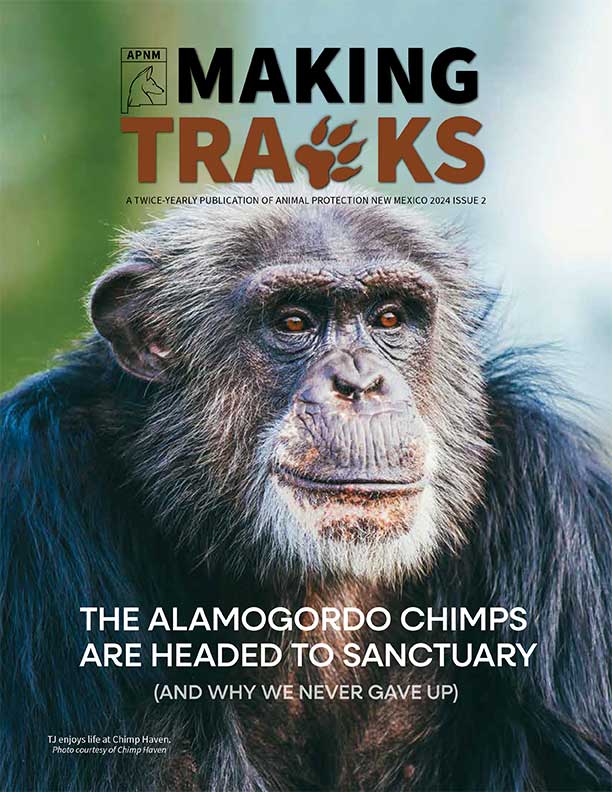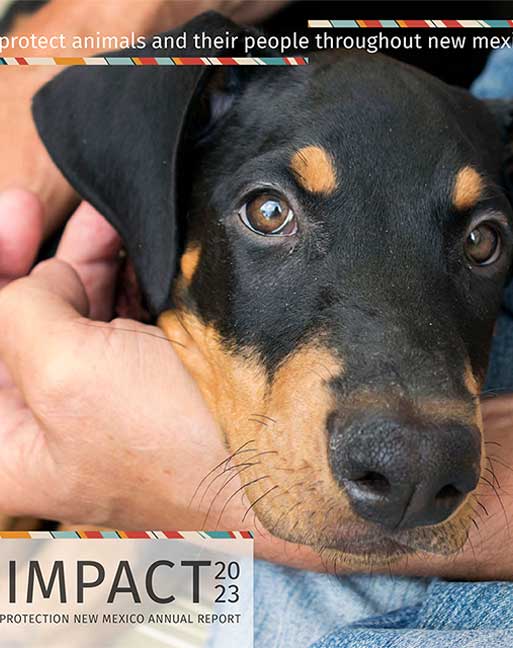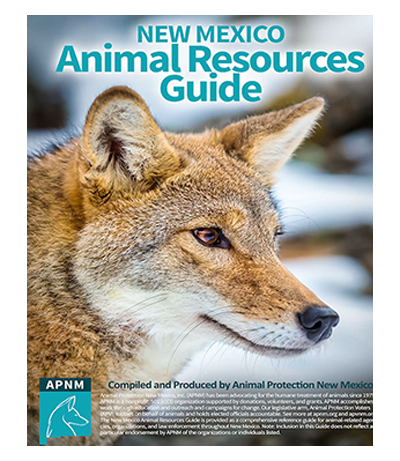The Importance of Spay/Neuter Services in New Mexico
Cat and dog overpopulation is at a crisis level in New Mexico. Uncontrolled breeding of cats and dogs, including those who are stray, abandoned and homeless or those with homes, has created this costly and tragic epidemic. The number of dogs, cats, kittens and puppies received annually by New Mexico’s public and private shelters is estimated at more than 135,000; Of those, nearly half are euthanized each year because there are not enough homes for them all. The health, safety and general welfare of the animals and residents of New Mexico will be better served by having affordable spay/neuter services widely available in New Mexico.
The more homeless animals there are, the higher the cost to communities to provide animal care and control services sufficient not only to protect the animals but to protect the public from related risks such as bite injuries and fatalities, disease transmission, traffic accidents, and property damage. Associated costs for basics such as personnel, facilities, equipment, training, sheltering, and euthanasia increase proportionally.
Each year, the tens of thousands of lost and unwanted kittens, puppies, cats and dogs in our state face homelessness, abuse, starvation, disease, injury, and death roaming the streets. Even after reaching shelters, the vast majority cannot be saved, despite the tireless efforts of animal control officers, shelter employees, rescue organizations, and members of the public. The irony, of course, is that overpopulation can be prevented.
The causes of New Mexico’s cat and dog overpopulation crisis are simple:
- Uncontrolled and irresponsible breeding of dogs and cats.
- The purchase of companion animals from pet shops and breeders.
- Stray and lost animals who have not been spayed or neutered.
- Unwanted and abandoned animals.
The solutions are equally simple:
- Spay and neuter companion animals.
- Implement and support low-cost and no-cost spay/neuter programs and clinics.
- Adopt companion animals from shelters or from reputable rescue organizations, rather than buying them from pet shops or breeders.
- Develop humane education programs for schools and other community outreach venues.
Spay and neuter surgeries are safe, common procedures performed by licensed veterinarians in order to render female and male animals sterile. Dogs and cats have greatly improved chances of living longer lives and enjoying good health and contentment if they are spayed or neutered. Spaying and neutering are by far the most reliable cures for numerous health and behavioral problems. Animal Protection New Mexico provides continual updates of statewide spay and neuter resources to the public. Animal Protection New Mexico collaborates with individuals, nonprofits, and local government officials in communities statewide to create effective spay/neuter programs. Citizens are encouraged to work with their state and local officials to secure funding for local efforts in their regions.
A Few Facts About Dog and Cat Overpopulation
- Average number of litters a fertile cat can produce in one year: 3
- Average number of kittens in a feline litter: 4-6
- In seven years, one unspayed female cat and her offspring can produce hundreds of thousands of kittens.
- Average number of litters a fertile dog can produce in one year: 2
- Average number of puppies in a canine litter: 6-10
- In seven years, one unspayed female dog and her offspring can produce hundreds of thousands of puppies.




